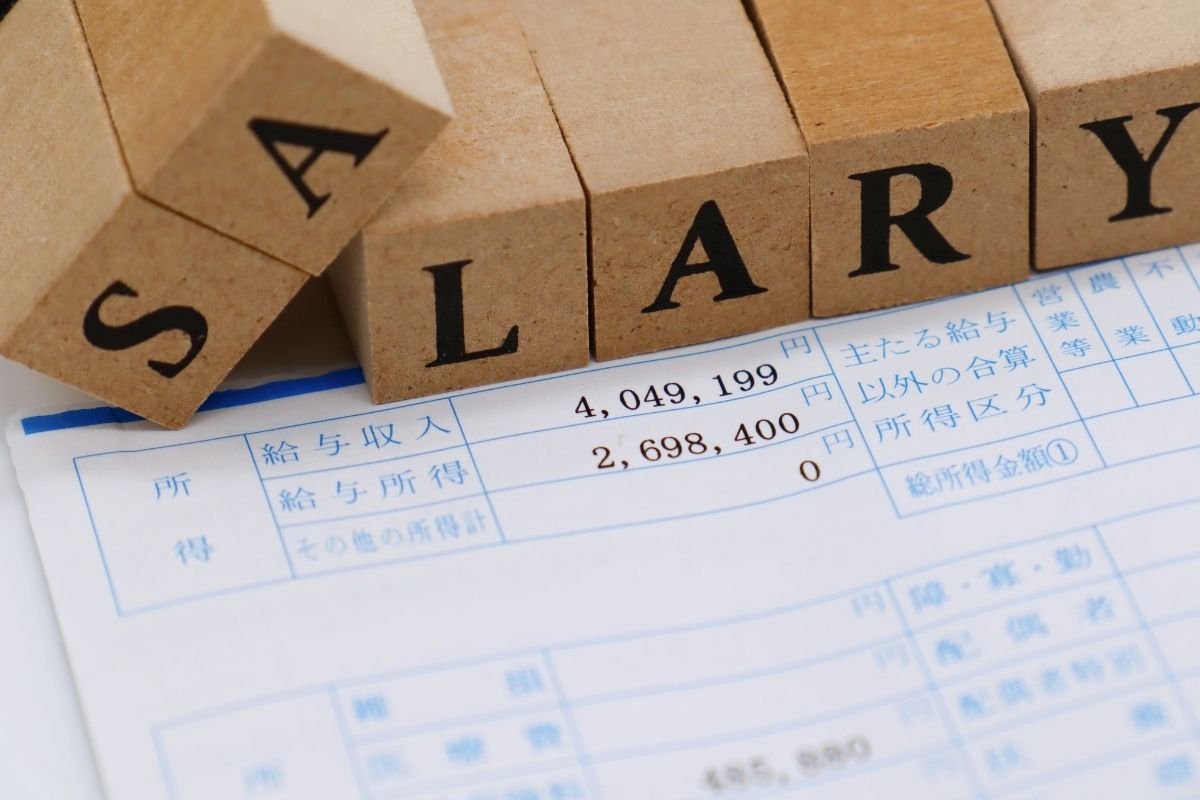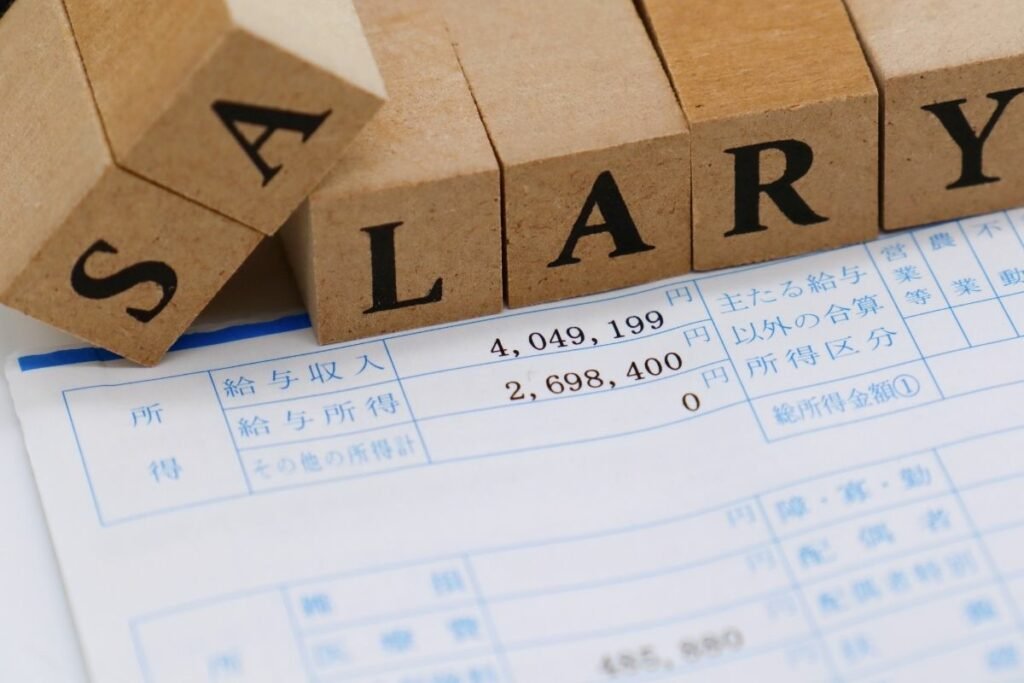Salaries the world over are different depending on the country that you live in and the jobs that you do. Yet, for every country in the world, there is an average salary that people are paid.
This can be big or a small amount, but there is always a mean amount.

There are many things that affect salary, some are global, like the economy or jobs in a technologically progressive field, and some are more localized, like a job with cultural significance in a certain area or a religious job, and all of them feed into what makes the average salary for a particular area.
Take Japan for example. Japan is a very different and unique culture compared to a lot of cultures in the world.
As such, there are going to be a variety of jobs that are given a different value to them than jobs in the west, be they culturally unique or globally uniform in nature.
Due to this, a particular question is raised, especially by those who are moving to Japan: what is the average salary in Japan? Is it more or less than America?
What can I expect my paycheck to look like? In this article, we will take a closer look at Japanese salaries and see how they stack up to other countries’ salaries.
Average Salary In Japan
First, we will answer this question quickly. The median salary in Japan is about 545,000 Yen per month, which in US dollars is around $4,785 per month.
This is a percentile average as well, meaning that this is directly proportionate to the known salaries of people in Japan. If you live in Japan, you will be in the 50% who earn below this amount or the 50% who earn above it.
Of those people who earn above 545,000 Yen per month, 25% of them earn more than 1,510,000 Yen or $13,263 per month. Of those who earn lower than 545,000 Yen per month, 25% of them earn less than $2670 per month.
These figures are for the entire population top 25% earners and bottom 25% earners, rather than just the median earners.
If we were to take the minimum and maximum salaries that almost 100% of people are on in Japan, then we would see a trend towards more people earning quite a bit less than the maximum.
So, the minimum average salary is 130,000 Yen or $1141 per month and the maximum average salary is 2,300,000 Yen or $20,200 per month.
While the minimum salary here is the minimum salary for Japan, the maximum is the amount that 99% of people earn up to in Japan. If a person earns more than this amount, they are a part of the super-rich in Japan, not the majority of people.
What Affects Salaries In Japan?
There are a few things that impact salary in Japan, from industry to time of year, but the thing that influences Japanese salaries the most significantly is experience.
Unlike the companies of the west, Japanese companies view their employees not just as workers but as investments for the future of their business.
For example, there is a phenomenon in most western companies of needing experience before getting a job. They want you to be able to do the job without them having to take time and money to train their new employees.
Part of it is a money saving tactic, and the other part is that they don’t expect employees to stay beyond a few months to a year.
This is not the case in Japan. In Japan, companies want to know you have the qualifications for the job and that you’ll stay in it, more than previous experience.
New employees they take on are frequently trained in all aspects of the job by the company, and in return they expect loyalty and devotion to said company.
Therefore, pay is scaled by experience and time spent with that company. The pay is often scaled in slots equating to a certain amount of years, which then affects the percentage of a salary increase you will receive.
People who have worked for a company for 1 to 2 years will not generally receive a salary increase, but starting from 2 to 5 years, you can expect your salary to go about 32% on average.
From 5 to 10 years, it goes up on average another 36%, from 10 to 15 years it is another 21%, 15 to 20 years is another 14%, and then from 20+ it is another 9% on average.
Essentially, if you have been working for a couple of years and your salary was around 300,000 Yen or $2634 per month, then by the 20-year mark with that company you could reasonably expect your monthly salary to have increased to 636000 Yen or $5584 per month.
Education also alters salary greatly in Japan, with PhD graduates typically earning 93% more than high school graduates.
This affects salaries less overtime than experience in Japan, as the rise is felt when they first start a job, rather than being constantly increased for the more qualified. However, this is still a sharp increase for those who are more educated.
Comparison To America

To give you an idea of how Japan’s average salary fits into the global average salary, we will take a look at the United States of America. We will do what we did before and take the median salary of the US, which is $94,000 per year.
Now, I know what you are thinking, the average person does not earn $94,000 per year, and you would be right, this is also true of the number for Japan – 545,000 Yen per month.
For these figures, we have taken the direct middle or median for everyone in these countries. This includes the super-rich and the super poor.
In lands of extreme wealth and extreme poverty, like America, these numbers can seem odd or unrealistic, but they are the direct middle. This is why we put in percentiles to make it more understandable.
So, $94,000 is the median yearly salary of the US or around $7,800 per month before taxes, 50% of the population earn below this and 50% of the population earn above this.
25% of the American population earn below $52,600 a year and 25% of the American population earn above $253,000 a year.
The minimum average salary in America is around $24,000 per year and the maximum average salary is around $453,000 per year, with lots of salaries being both below and above these averages.
The question really is what does this show us about these two countries.
Looking at it from monthly salaries, actually quite a lot. For Japan, the lowest and highest average salaries in dollars are $1141 and $20,200 per month with a difference between them of $19,059.
For America, the lowest and highest average salaries in dollars are $1500 and $37,750 per month with a difference between them of $36,250.
What this tells us is that while you have the potential to earn more in America, you also have the potential to be priced out of the country by the wage disparity, which is much larger than in Japan.
Although the average wage is lower than in America, in Japan there is more potential for increase in the long term, thanks to their investment in their employees.
This actually presents an interesting look at each of these countries’ cultural norms, as America is an incredibly competitive country where great gambles can lead to great success or ruination in short amounts of time, whereas in Japan slow and steady progress and loyalty is rewarded continually, albeit never as much as it could be in America.
Final Thoughts
The average salary in Japan is very high, although not as high as America. Though this may off-put some people, you actually don’t need that much money to live in Japan comfortably (see also ‘Best Places To Live In Japan‘).
I worked as an Assistant teacher in Tokyo and made 240,000 Yen or $2100 a month and I lived very comfortably while there, in fact I was able to go abroad twice, around northern Japan a couple of times, and still saved quite a bit of money.
As such, if you plan to work in Japan, look up the cost of living in your area and decide how much you would need to live comfortably, rather than immediately disregarding it because of the money.
You may actually be able to get by on far less than you thought you were going to need.
- What Is a Maiko? - July 13, 2025
- What Does Domo Arigato Mean? - July 12, 2025
- What Does Naruto Mean? - July 12, 2025









